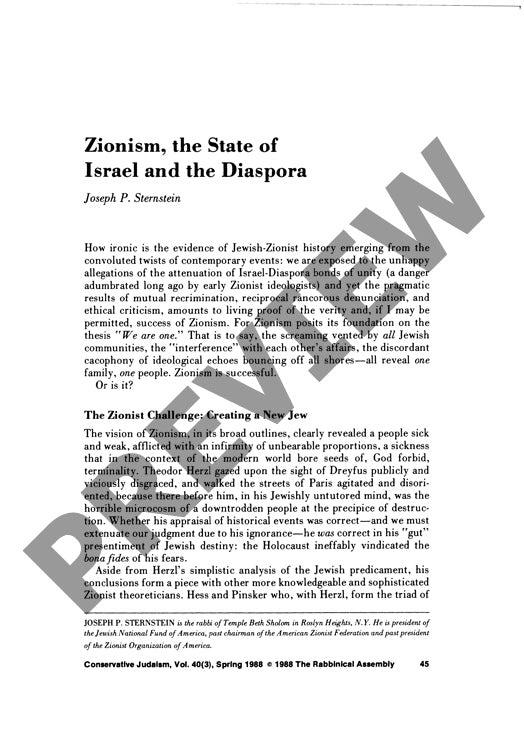Zionism the State of Israel and the Dias
Couldn't load pickup availability
Forty years after Israel's establishment, tensions between the Jewish state and diaspora communities paradoxically validate Zionism's success by demonstrating sustained Jewish unity through shared concern and mutual critique. The complex interplay between Zionist ideology, Israeli statehood, and diaspora identity emerges through historical analysis of foundational theorists like Herzl, Hess, and Pinsker, revealing an ambitious vision to create a "new Jew" embodying strength, pride, and national consciousness—a marked departure from traditional diaspora identity characterized by vulnerability and accommodation. Contemporary debates question whether Israel's exercise of state power has compromised traditional Jewish ethical values (neshamah), yet parallel challenges in early American democratic development suggest that forty years provides insufficient perspective to evaluate Zionism's effectiveness. Israel's sovereign responsibilities, including security and law enforcement, remain fundamentally aligned with Jewish ethical principles, even as the state grapples with fulfilling Zionism's aspirational goal of moral exemplarity (or la-goyim). This historical and ideological analysis illuminates the evolving nature of Jewish identity and intra-communal relationships in the modern era.

More Information
-
Physical Description
-
Publication Information
Published 1988
ISBN
-
Publication Credits
Joseph Sternstein

